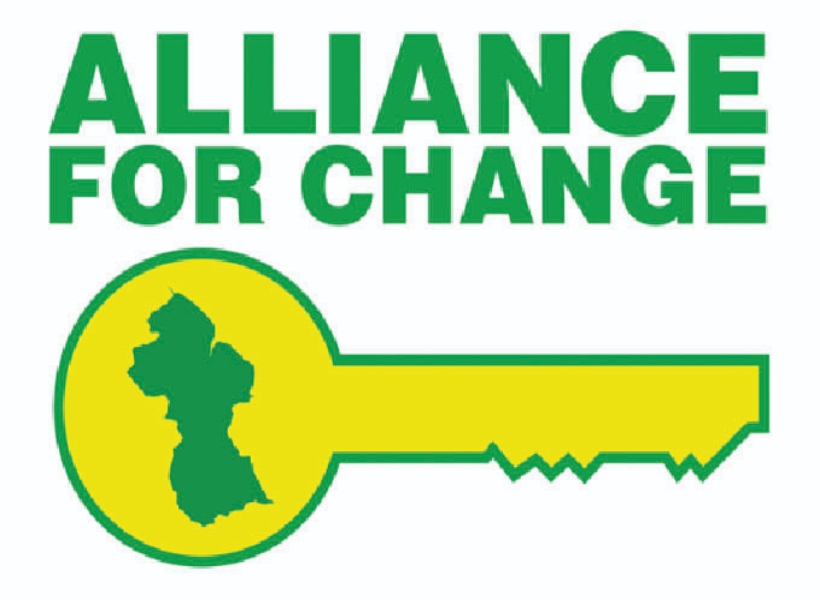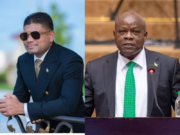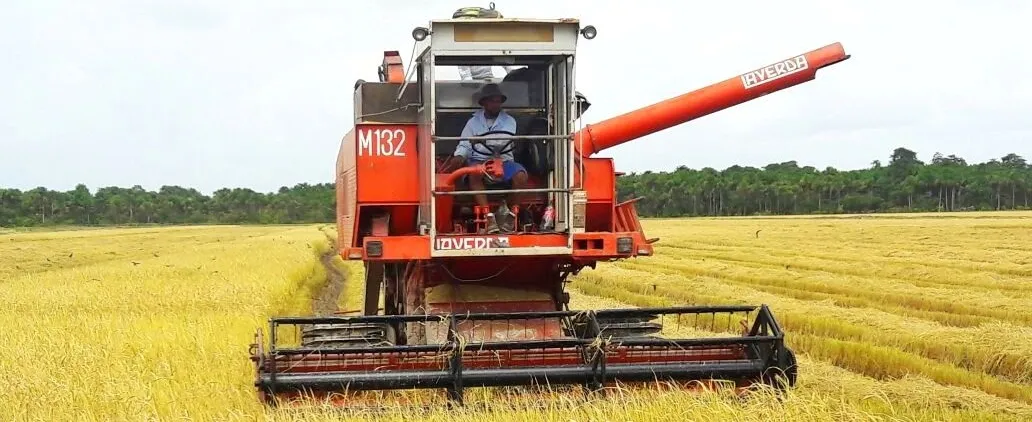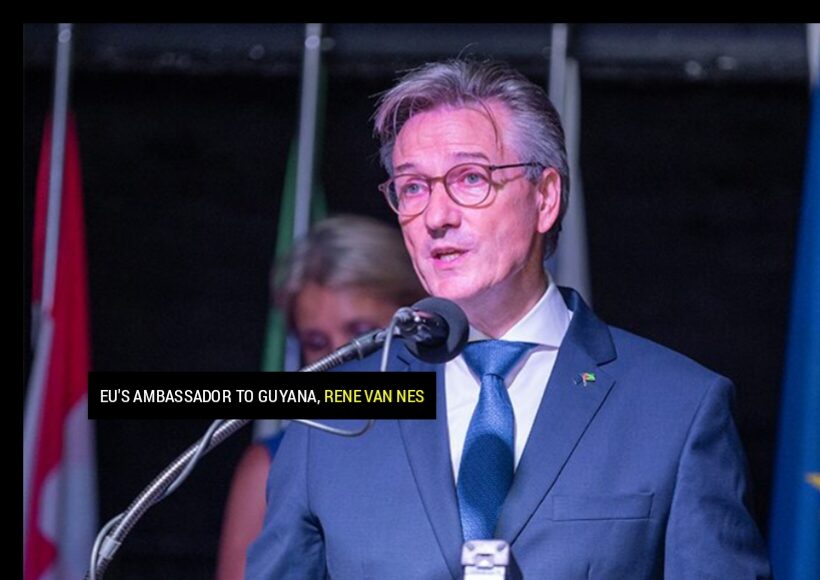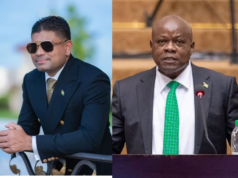Weighing in recently on the Guyana -Venezuela border controversy, the European Union (EU) emphasized the importance of adherence to the legal proceedings at the International Court of Justice (ICJ) in resolving the issue. Specifically, the EU’s Ambassador to Guyana, Rene Van Nes, underscored the significance of due process during a press conference, amidst Venezuela’s planned referendum to possibly annex Guyana’s territory in the Essequibo region.
The EU diplomat firmly stated the EU’s stance, emphasizing the use of international law and multilateral institutions as the appropriate framework for addressing international disputes. He urged both parties to avoid unilateral actions or escalations in light of the ongoing proceedings at the ICJ, which is the agreed mechanism to address the situation.
Guyana and Venezuela have long been engaged in a border dispute, however, tensions escalated in September, when the Spanish-speaking nation strongly objected to Guyana’s 2022 Licensing Round for oil blocks, primarily citing concerns related to maritime delimitation.
Venezuela had issued a strongly worded communique, expressing apprehension about Guyana’s intentions to auction specific oil blocks in the disputed waters off its coast. The communique also contained veiled threats to take “all necessary measures” to prevent operations authorized by Guyana in these contested waters, which Venezuela lays claim to.
Recent reports and videos have also revealed increased Venezuelan military activity near Guyana’s border in Eteringbang, Cuyuni, Region Seven.
Further complicating matters, Venezuela has scheduled a referendum for December 3, 2023, regarding its claims to Guyana’s oil-rich territory. The questions approved for the referendum encompass issues related to historical disputes and legal instruments.
Guyana sought the World Court’s intervention to prevent Venezuela from proceeding with its referendum, particularly against questions that challenge the boundary set in the 1899 Arbitral Award and the ICJ’s jurisdiction.
The ICJ, as per Guyana’s request, is also seeking orders to prevent Venezuela from taking actions to assert sovereignty over the territory awarded to British Guiana in 1899 and to refrain from actions that could exacerbate the matter.
The ICJ has since set a date for November 14 for a public hearing on Guyana’s efforts to block Venezuela’s referendum on December 3 that seeks to annex the Essequibo area.
Regional and international bodies, including the Caribbean Community (Caricom), the Organisation of American States (OAS) Secretary General Luis Almagro, and the United States, have voiced support for a peaceful resolution and called for restraint in the border controversy.
